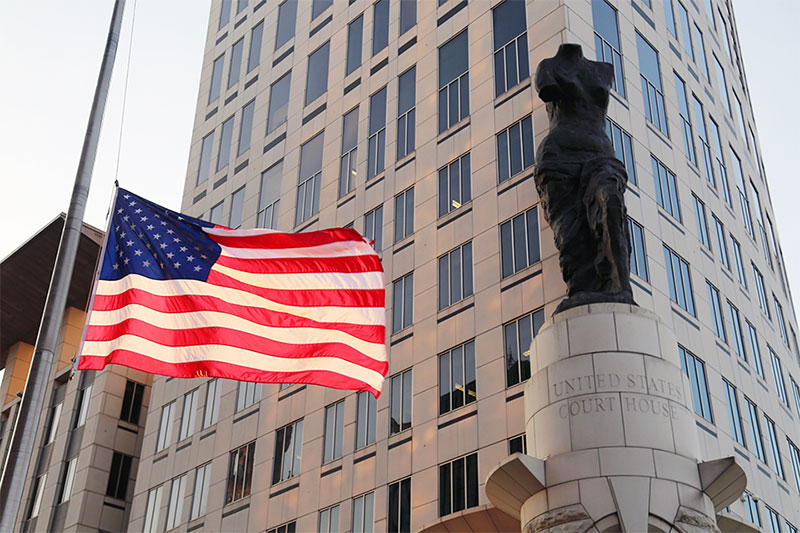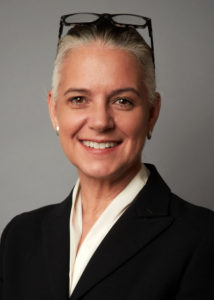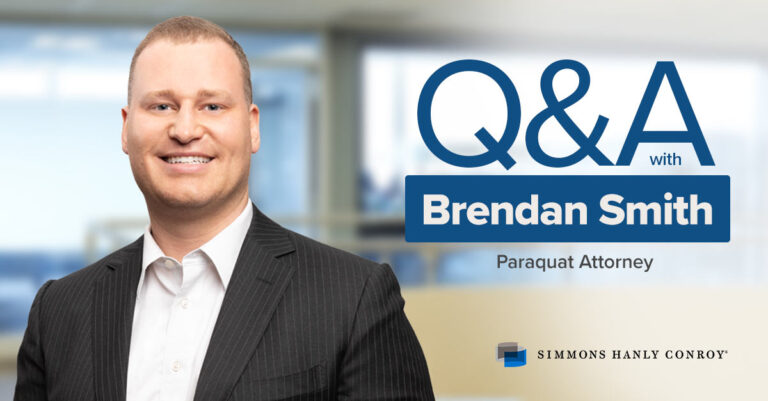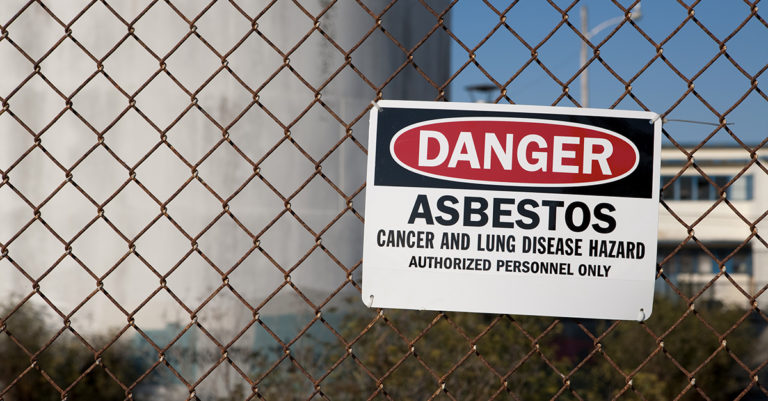
The American flag flies in front of the Carl B. Stokes Federal Courthouse building in downtown Cleveland, OH where thousands of lawsuits brought by cities and counties nationwide were consolidated into the National Prescription Opiate MDL. The details surrounding the previously proposed $26 billion global settlement with four defendants were recently released.
Shareholder Jayne Conroy of Simmons Hanly Conroy, served on the team that led negotiations on behalf over 3,000 communities comprising the federal opioid litigation.
Simmons Hanly Conroy, a leader in the federal opioid litigation, joins the Plaintiffs’ Executive Committee, in formally announcing the terms of the global settlement agreement with opioid manufacturer Johnson & Johnson and the “Big Three” drug distributors AmerisourceBergen, Cardinal Health, and McKesson.

Simmons Hanly Conroy Shareholder and Co-lead of the PEC Jayne Conroy supports the negotiated terms, which include a higher total amount than previously offered as well as increased upfront dollars for abatement programs in the first few years of settlement payments.
These terms also include injunctive relief that requires important changes to the Big Three and J&J’s conduct to better protect our nation’s health and welfare. This reform package includes the creation of a groundbreaking clearinghouse through which the Big Three will be required to account not only for their own shipments, but also the shipments of the other distributors, in order to detect, stop, and report suspicious orders. In addition, J&J and all of its subsidiaries have agreed to a 10-year prohibition on the manufacture, sale, and distribution of their opioid products.
The settlement terms presented today were the result of years of advocacy by the entire National Prescription Opioid Litigation (NPOL) Plaintiffs’ Executive Committee (PEC) on behalf of their over 3,000 community clients. This team of lawyers has worked collaboratively and tirelessly in positioning these cases for this unprecedented chance at resolution.
The negotiation of this expansive settlement was executed by Conroy, along with Joe Rice of Motley Rice, Elizabeth Cabraser of Lieff Cabraser, Peter Mougey of Levin Papantonio Rafferty, Paul Geller of Robbins Geller, Chris Seeger of Seeger Weiss, Jennifer Scullion of Seeger Weiss. Another important member of the team, Simmons Hanly Conroy Shareholder Paul J. Hanly Jr. sadly lost his life to cancer in the weeks before the deal was reached.
This team of lawyers worked day and night, for over two years, alongside State Attorneys General and several of the nation’s leading defense counsel who collectively recognize the importance of reaching this historic opportunity for global resolution.
Statement from PEC negotiation team:
“Our country’s opioid epidemic is a nationwide public health crisis that requires a nationwide solution. We cannot solve this problem piecemeal. One community cannot begin to recover from the crisis if its neighboring community does not also have resources dedicated to abatement of the epidemic. While these settlements are complex and will take time to implement, they are a pragmatic and efficient way to effect transformative change and reform the way prescription opioids are distributed in the United States while allocating tens of billions of dollars to support critical abatement efforts around our country.
Reaching an agreement is just step one.
This settlement is structured to provide choice to states and their counties, cities, and towns or ‘subdivisions.’ The first phase is for our states, through the Attorneys General, to decide within 30 days whether their state will participate in the settlement. It will require overwhelming state participation for the settlement to move forward. A state must participate in order for its subdivisions to be eligible to participate. Then, in the states that join the settlement, the local subdivisions will decide whether they will participate. The negotiation team is unanimous in our recommendation that if the number of participating states is an overwhelming number of eligible states, our clients, and every other municipal government, should recognize that this agreement is a promising step towards nationwide abatement of the opioid epidemic.
The PEC unanimously endorses this settlement and strongly encourages participation across the country. But again, it is important to stress that this initial participation decision by litigating subdivisions is step two in this process; we do not move forward unless the settling defendants find the volume of participation is significant in their sole opinion to warrant concluding the settlement.
So while today’s announcement suggests a milestone agreement, important work remains to be done, and the process will take some time.
We also must remember that these settlement funds, and the conduct changes that this settlement will require, do not end the opioid litigation brought by local governments. Several trials are underway and more are upcoming. We simultaneously are in the midst of preparing to try additional cases against various pharmacy chains for their role in dispensing opioids in Ohio as well as against manufacturers and pharmacies in San Francisco.
Decades of opioid manufacturers, distributors, and dispensers choosing to put profits ahead of health and safety is what caused and perpetuated this public health crisis. Taxpayers and communities were forced to bear the costs of the crisis, which has taken hundreds of thousands of lives and drained billions from local economies. It is going to take a multifaceted approach over decades to fully recover. But this settlement is a much-needed start on that long road to recovery.”
More and updated information is available at the PEC negotiation team’s website: www.nationalopioidsettlement.com.




